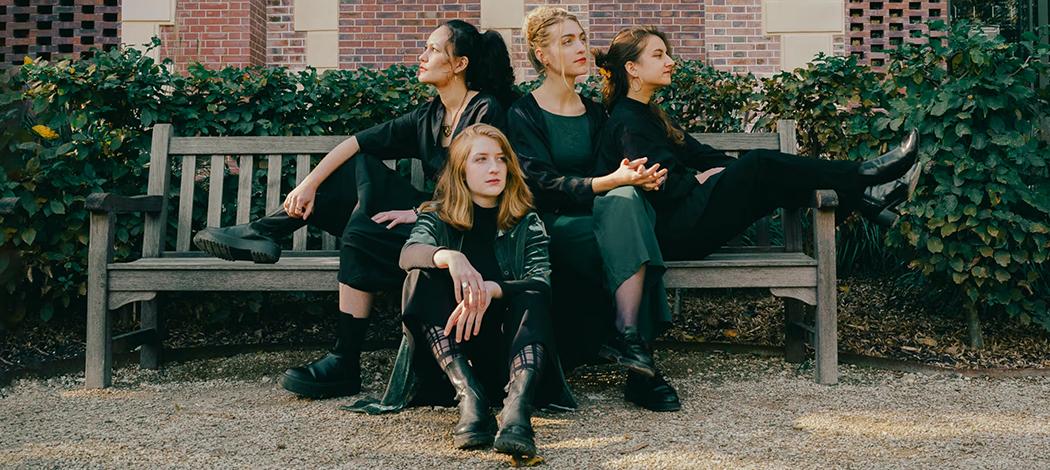31.08. | 20:30 | American gardens | Opatija

THE BANSHIES
Yaoré Talibart | violin
Roxana Rastegar | violin
Suzanne Wolff | cello
Louise Acabo | harpsichord
Caldara, Antonio (1670-1736)
Trio sonata op. 1 no. 5
I. Grave
II. Vivace
III. Adagio
IV. Vivace
Vivaldi, Antonio (1678-1741)
Trio sonata op. 1 no. 2
I. Grave
III. Gigue
Legrenzi, Giovanni (1626-1690)
Sonata op. 2 no. 2, « la Spilimberga »
Bach, J.S (1685-1750) / Marcello, Alessandro (1673-1747)
Adagio, BWV 974
Caldara, Antonio (1670-1736)
Trio sonata op. 1 no. 12
IV. Allegro
Porpora, Nicola (1686-1768)
Sinfonia da Camera op. 2 no. 3
I. Adagio
II. Allegro
Vivaldi, Antonio (1678-1741)
Cello sonata RV 46
I. Largo
IV. Allegro
Biber, Heinrich Ignaz (1644-1704)
Rosenkranzsonate no. 1
I. Praeludium
Muffat, Georg (1653-1704)
Concerto grosso « Armonico Tributo » no.2
I. Sonata - Grave
IV. Aria
VIII. Borea. Alla breve
Muffat, Georg (1653-1704)
Sonata for solo violin
I. Adagio
Fux Johann Joseph (1660-1741)
Triopartita K. 320
I. Andante
II. Allegro - Adagio
III. Sarabande
IV. Passacaglia
Caldara, Antonio
Triosonata op.1 no.4
I. Grave
IV. Allegro
THE BANSHIES
In Irish mythology, the Banshee is a messenger from another world. The four musicians of The Banshies felt the need to form their own ensemble to create a space of free experimentation. Here, music serves as a bridge—from text to emotion, from the physical to the mystical.
The ensemble evolves like a ball of clay, shaped by the sensitivities of each member and their connections, while abolishing any sense of hierarchy. The violins take turns in the spotlight, supporting the cello or the harpsichord, and sometimes stepping aside to give full attention to a member as soloist. The Banshies’ universe is based on their exchanges—collaborators sharing diverse cultures and passions from broad musical interests to literature, visual arts, and applied arts to which they are deeply attuned. Their programs are built around a central concept: telling a story through the concert. Each performance charts a journey, blending works from the great Baroque repertoire, traditional airs, and transcriptions. They offer programs that transform and adapt, such as “Let thy charms,” an English program first performed with mezzo-soprano, later performed as a purely instrumental program, then without harpsichord, and finally as a violin duet program.
This flexibility allows them to share their musical world in diverse contexts and with varied audiences, including performing in hospitals alongside the “Live Music Now” association.
In September 2024, the ensemble was chosen for a residency at the prestigious Singer-Polignac Foundation, while in the same year joining the European S-EEEMERGING+ program. They have performed in French festivals such as the Ambronay Festival, the Moments Musicaux de Gerberoy, and the Marin Marais Festival, as well as across Europe, from Spain to Croatia. They are currently preparing their first album, which will explore the reciprocal aesthetic influences between Venice and Vienna through the remarkable figure of Antonio Caldara.
No more tickets available!